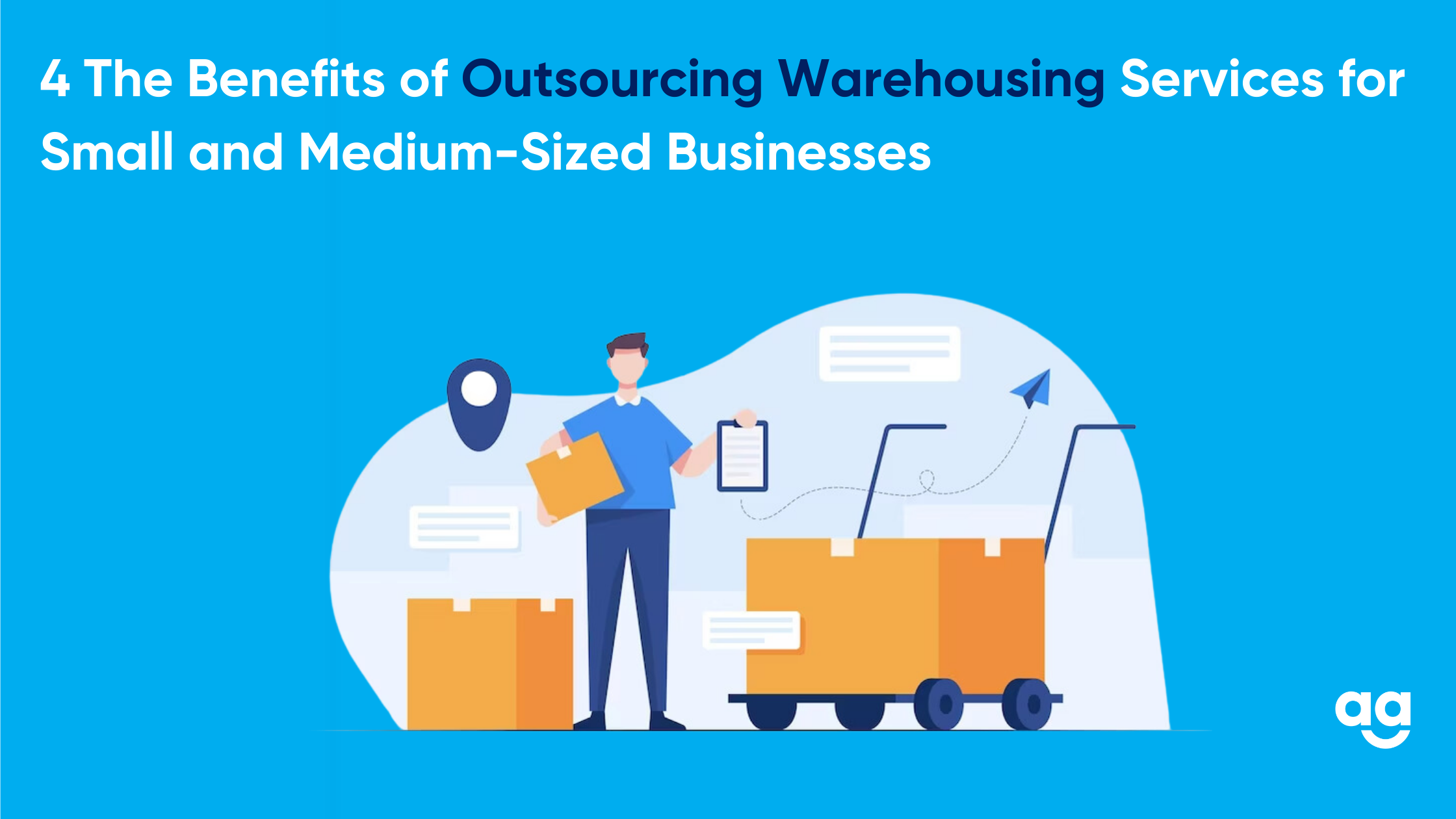Small and medium-sized businesses (SMBs) often face challenges in managing their supply chain, including warehousing and distribution. Warehousing can be a complex and costly operation, requiring significant investments in space, equipment, and personnel. Therefore, outsourcing warehousing services can be a viable option for SMBs, allowing them to focus on their core competencies and reduce their operational costs.
In this blog, we’ll discuss some of the benefits of outsourcing warehousing services for SMBs.
4 Benefits of Outsourcing Warehousing Services
1. Cost Savings
One of the main benefits of outsourcing warehousing services is cost savings. Outsourcing warehousing services can help SMBs reduce their capital expenditures, such as buying or leasing warehouse space, equipment, and technology. Additionally, outsourcing can also help SMBs reduce their operating expenses, such as labor, utilities, and maintenance.
Moreover, outsourcing warehousing services can help SMBs avoid the risks and uncertainties of owning and operating a warehouse, such as fluctuations in demand, changes in regulations, or unexpected events. Additionally, SMBs benefit from economies of scale and expertise, by sharing resources and knowledge with other businesses.
For example, a small eCommerce business that sells handicrafts may not have the resources to invest in a warehouse and the associated equipment and personnel. By outsourcing warehousing services to a third-party logistics (3PL) provider, the business can save money on the fixed costs of warehousing and focus on its core competencies of crafting and marketing.
2. Flexibility and Scalability
Another benefit of outsourcing warehousing services is flexibility and scalability. Outsourcing warehousing services can help SMBs adapt to changing demand and customer preferences, by providing flexible and scalable solutions, such as on-demand storage, pick-and-pack, and cross-docking. Outsourcing warehousing services can also help SMBs expand their reach and market share, by providing access to a wider network of warehouses and distribution channels.
Moreover, it also helps SMBs reduce their lead times and improve their delivery performance, by leveraging the expertise and technology of the service provider. Besides, it helps SMBs reduce their inventory levels and carrying costs, by optimizing their supply chain and logistics.
For example, a medium-sized fashion retailer may experience seasonal fluctuations in demand, with higher sales during the holiday season and lower sales during the summer. By outsourcing warehousing services to a 3PL provider, the retailer can adjust its storage and distribution needs according to the demand, without incurring fixed costs or excess inventory.
3. Expertise and Technology
Another benefit of outsourcing warehousing services is expertise and technology. Outsourcing warehousing services can help SMBs benefit from the knowledge and experience of the service provider, who can offer best practices, industry standards, and regulatory compliance. Outsourcing warehousing services can also help SMBs benefit from the technology and innovation of the service provider, who can offer advanced systems, software, and equipment.
Moreover, it can help SMBs reduce their training and development costs, by relying on the expertise and skills of the service provider. An added benefit is that SMBs can reduce their risks and liabilities, by relying on the insurance and legal coverage of the service provider.
For example, a small medical device manufacturer may need to comply with strict regulations and quality standards, such as the Food and Drug Administration (FDA) and the International Organization for Standardization (ISO). By outsourcing warehousing services to a 3PL provider that specializes in healthcare logistics, the manufacturer can ensure that its products are stored and distributed according to the regulations and standards, without investing in the specialized expertise and technology.
4. Focus on Core Competencies
Another benefit of outsourcing warehousing services is the ability to focus on core competencies. Outsourcing warehousing services can help SMBs concentrate on their core business activities, such as product development, marketing, and customer service, by delegating the warehousing and distribution tasks to the service provider. Outsourcing warehousing services can also help SMBs improve their competitiveness and differentiation, by focusing on their unique value proposition and market niche.
Moreover, it can help SMBs reduce their management and administrative burden, by relying on the service provider to handle the day-to-day operations and reporting. Additionally, it can also help SMBs reduce their stress and burnout, by delegating the non-core tasks to the service provider.
For example, a small software company may need to focus on developing and selling its products, while ensuring that its customers receive timely and reliable support. By outsourcing warehousing services to a 3PL provider that offers fulfillment and customer service, the company can free up its resources and attention to its core competencies, without compromising on the quality and satisfaction of its customers.
Conclusion
Outsourcing warehousing services can be a smart and strategic decision for SMBs, allowing them to benefit from cost savings, flexibility and scalability, expertise and technology, and focus on core competencies.
By outsourcing warehousing services, SMBs can improve their supply chain and logistics, and enhance their customer satisfaction and loyalty. By choosing a reliable and reputable service provider, SMBs can ensure a smooth and successful outsourcing experience.







 Shipping
Shipping







